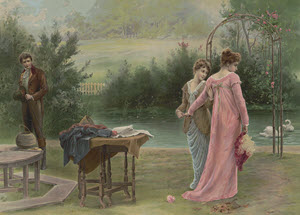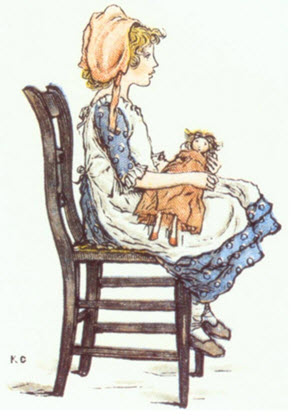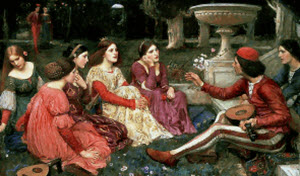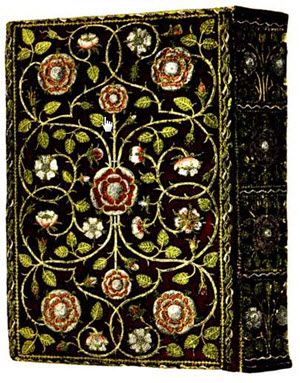EDGAR ALLAN POE - Part 8
Poe's new book found little welcome except in the quizzical appreciation of Neal, and did not divert the poet from his soldierly aspirations. He entered West Point on July 1, 1830, and thus, like a later undisciplined and eccentric American artist, he became associated with an institution of rigid bearing and dutiful formality. When Poe entered the Academy, he was older than the allowed age limit, twenty-one, but, being a master of mathematical puzzles, he had no difficulty in being recorded as under twenty. He looked older than he really was, and the story was circulated that the appointment had been intended for the son, but the father had come instead. This story rightly suggests a prematurely old youth who had seen a good deal of the world and whose vocabulary and intellectual interests were a decade in advance of boyish cadetship. The story did not please him so much as another one, even less warranted by the facts, that he was a grandson of Benedict Arnold. Like Byron, who also swam, wrote poetry, and championed the Greeks, Poe enjoyed dark reputations. Poe's literary tastes were known to his associates. He was glib and dogmatic in his criticisms of books which his fellows probably did not read, and he made satirical jests in rhyme about the instructors, one stanza of which still remains. But he was not regular in class-room work. He was insubordinate, and his infringements of regulations in creased as the year waned.
It is assumed that Mr. Allan's second marriage in October, 1830, made Poe more than ever doubtful of succeeding to any part of his guardian's fortune, and Poe said later, in effect, that the prospect of living on a soldier's wage did not please him. He tried to resign, but Mr. Allan did not approve, and Poe took measures to have himself dismissed. He was among the delinquents summoned to court-martial in January, 1831. Before his case came on the calendar, he neglected his duties. Then he pleaded guilty to every charge except the one most easily proved,-failure to be at his post. He was dismissed, and on March 6, 1831, he found himself again free, penniless, and without a trade or profession.
He signalized his departure from West Point by taking subscriptions from the cadets for a new volume of poems which he dedicated to them. The cadets thought the book would contain the kind of poetry they enjoyed,-the satirical skits on instructors. They received instead of such interesting matter a volume in which there were, among much amateurish poetising, two or three fine poems.
Poe's third volume contained revisions of the best in the Baltimore volume, and in addition "Israel," "To Helen" "The Doomed City " ("The City in the Sea"),"Irene" ("The Sleeper"), "The Valley Nis" ("The Valley of Unrest").. The earlier books of verse were the doubtful attempts of the young poet, of which we might have forgotten the good lines if later achievement had not compelled us to scan them closely ; but had Poe died at the moment this third volume was published, it must surely have been remembered, for the original magic, the haunting cadence, the fresh use of language, which mark the new, the unforgettable poet. The introduction contains Poe's first enunciation of the principle that the purpose of poetry is to utter a definite idea in musical form. This idea, "the rhythmical creation of beauty," and so on, has long been commonplace, or at least has been commonly accepted by poets from Coleridge to the youngest Irish bard in London, That it was revolutionary in America is indicated by our tardy recognition of Poe's supremacy among American poets and by the ascendency of those less finely tuned moralities of American verse against which Poe protested all his life.
Three days after Poe's dismissal from West Point he wrote from New York to Colonel Thayer,
the superintendent of the Military Academy : "Having no longer any tie which binds me to
my native country,-no prospects nor any friends, -I intend, by the first opportunity, to
proceed to Paris with the view of obtaining, through the interest of the Marquis de La
Fayette [who, it will be remembered, admired Poe ? s grandfather], an appointment, if
possible, in the Polish Army." He asks Colonel Thayer's assistance. "A certificate of
standing in my class is all I have any right to expect." This letter, not published till
five years ago, shows that Poe seriously cherished those adventuresome projects which his
romantic invention subsequently transmuted into events, and that he had no immediate hope
in Mr. Allan's bounty. The story of a violent scene and his final ejection from the Allan
house about this time seems probable.




